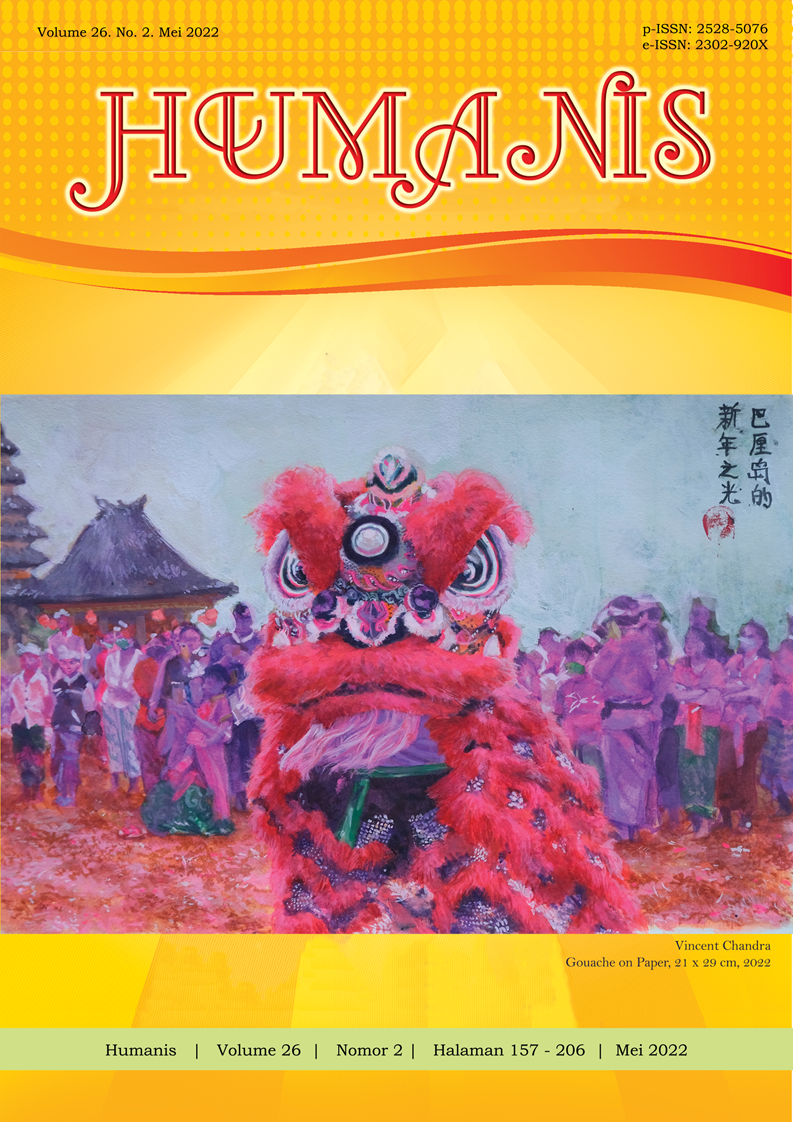Posisi Buton dalam Arus Sejarah Indonesia
Abstract
Buton is a local kingdom that has not been widely discussed in Indonesian history. This sultanate has a uniqueness that is rarely owned by other sultanates in the archipelago. One of these uniquenesses is the ties of cooperation between Buton and the VOC in many fields. Because of this, Buton is often considered a traitorous sultanate. This study was written to map the position of the Sultanate of Buton in terms of economy, politico-government, trade, defense, and diplomacy (including relations with the VOC) in Indonesian history. The critical history method was used in writing this article by using related research literature sources. It was concluded that the Buton government was in a unique position compared to other sultanates because the sultan was elected by the people and was not hereditary. Meanwhile, Buton's shipping and trade strategy remained at the point of Nationalism even though cooperation with the VOC was established here. Buton's government structure indicates that the position of this sultanate is at a modern stage compared to the sultanates in Java and Kalimantan.
Downloads
References
Hasanuddin. 2020. “Forts on Buton Island: Centres of Settlement, Government and Security in Southeast Sulawesi.” in Forts and Fortification in Wallacea, edited by Sue O’Connor, Andrew McWilliam dan Sally Brockwell. Canberra: ANU Press.
Indriani, H. (2020). Strategi Sultan Ageng Tirtayasa dalam Mempertahankan Kesultanan Banten. https://doi.org/10.31219/osf.io/gndc6.
Iriani & Sritimuryati. 2021. "La Elangi Sultan Buton ke IV". Attoriolog Jurnal Pemikiran Kesejarahan dan Pendidikan Sejarah Vol. 19 No. 2, hlm: 98-111.
Kanumoyoso, Bondan. 2011. "Beyond The City Wall: Society and Economic Development in the Ommelanden of Batavia, 1684-1740". Disertasi. Universiteit Leiden.
Karma. 2017. "Usaha Sultan Ageng Tirtayasa dalam Membangun Ekonomi Kesultanan Banten Abad XVII". Skripsi. UIN Syarif Hidayatullah, Jakarta.
Kartodirdjo, Sartono. 1987. Pengantar Sejarah Indonesia Baru 1500-1900: Dari Emporium Sampai Imperium. Jakarta: Gramedia Pustaka Utama.
Lubis, Nina Herlina. 2020. Metode Sejarah: Edisi Revisi 2020. Bandung: Satya Historika.
Marhini, La Ode; Syahrun dan Asniati. 2020. "Peranan Sultan Mardan Ali di Kesultanan Buton: 1647 -1654 M". Jurnal Idea Of History Vol 03 Nomor 1, hlm 13-23.
Mujabuddawat, Muhamad Al. 2015. "Kejayaan Kesultanan Buton Abad ke-17 & 18 dalam Tinjauan Arkeologi Ekologi. Jurnal Kapata Arkeologi Vol 11, No 1, hlm: 21-32.
Muliadin, Iwan. 2016. "Pasang-Surut Hubungan Buton–VOC: Studi Masa Sultan Himayatuddin Muhammad Saidi (1751-1752, dan 1760-1763). Skripsi. UIN Syarif Hidayatullah.
Rahman, Aulia Arif. 2011. "Islam dan Budaya Masyarakat Yogyakarta ditinjau Dari Perspektif Sejarah". El Harakah Jurnal Budaya Islam Vol. 13 No. 1, hlm: 1-16.
Suryani, Mardian. 2021. "Perkembangan dan Kebijakan Perekonomian Kerajaan Mataram pada Masa Pemerintahan Sultan Agung". Jurnal Nuansa Vol. XIV No. 2, hlm: 206-217.
Susilowati, Endang. 2004. "Pasang Surut Palayaran Perahu Rakyat di Pelabuhan Banjarmasin, 1880-1990". Disertasi. Universitas Indonesia.
Wibowo, Tubagus Umar Syarif Hadi. 2018. "Gawe Kuta BaluwartiBata Kalawan Kawis: Sebuah Konsep Historis dan Simbolis". Jurnal Candrasangkala Vol. 4, No. 1, hlm: 69-80.
Zuhdi, Susanto. 1996. Kerajaan Tradisional Sulawesi Tenggara: Kesultanan Buton. Jakarta: Departemen Pendidikan dan Kebudayaan RI.
Zuhdi, Susanto. 1999. "Labu Rope-Labu Wana: Sejarah Butun Abad XVII-XVIII". Disertasi. Universitas Indonesia.
Zuhdi, Susanto. 2014. Nasionalisme, Laut, dan Sejarah. Depok: Komunitas Bambu.


















